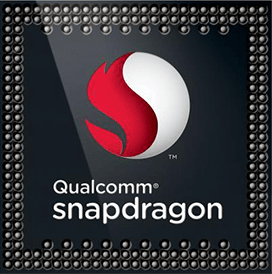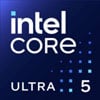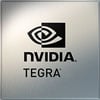
Qualcomm Snapdragon 8 Gen 2 for Galaxy Benchmark, Test and specs
Last updated:
The Qualcomm Snapdragon 8 Gen 2 for Galaxy has 8 CPU cores and can process 8 threads at the same time. The processor was presented in Q1/2023 and is based on the 2. Generation of the Qualcomm Snapdragon series. In the Geekbench 5 benchmark, the Qualcomm Snapdragon 8 Gen 2 for Galaxy achieved a result of 1,573 points (single-core) or 5,017 points (multi-core).

| Name: | Qualcomm Snapdragon 8 Gen 2 for Galaxy |
|---|---|
| Family: | Qualcomm Snapdragon (102) |
| CPU group: | Qualcomm Snapdragon 8 Gen 2 (2) |
| Architecture: | Cortex-X3 / -A715 / -A510 |
| Segment: | Mobile |
| Generation: | 2 |
| Predecessor: | Qualcomm Snapdragon 8 Gen 1 |
| Successor: | -- |
CPU Cores and Base Frequency
The Qualcomm Snapdragon 8 Gen 2 for Galaxy has 8 cores. The clock frequency of the Qualcomm Snapdragon 8 Gen 2 for Galaxy is 3.36 GHz. An initial performance assessment can be made using the number of CPU cores.
| CPU Cores / Threads: | 8 / 8 |
|---|---|
| Core architecture: | hybrid (Prime / big.LITTLE) |
| A-Core: | 1x Cortex-X3 |
| B-Core: | 4x Cortex-A715/A710 |
| C-Core: | 3x Cortex-A510 |
| Hyperthreading / SMT: | No |
|---|---|
| Overclocking: | No |
| A-Core Frequency: | 3.36 GHz |
| B-Core Frequency: | 2.80 GHz |
| C-Core Frequency: | 2.00 GHz |
Artificial Intelligence and Machine Learning
Processors with the support of artificial intelligence (AI) and machine learning (ML) can process many calculations, especially audio, image and video processing, much faster than classic processors. Algorithms for ML improve their performance the more data they have collected via software. ML tasks can be processed up to 10,000 times faster than with a classic processor.
| AI hardware: | Qualcomm AI engine |
|---|---|
| AI specifications: | Hexagon 780 @ 26 TOPS |
Internal Graphics
The Qualcomm Snapdragon 8 Gen 2 for Galaxy has an integrated graphics that the system can use to efficiently play back videos. The Qualcomm Snapdragon 8 Gen 2 for Galaxy has the Qualcomm Adreno 740 installed, which has -- streaming multiprocessors (-- shaders).
| GPU name: | Qualcomm Adreno 740 |
|---|---|
| GPU frequency: | 0.72 GHz |
| GPU (Turbo): | No turbo |
| Compute units: | -- |
| Shader: | -- |
| Hardware Raytracing: | Yes |
| Release date: | Q4/2022 |
| Max. displays: | 2 |
|---|---|
| Generation: | 8 |
| Direct X: | 12.1 |
| Technology: | 4 nm |
| Max. GPU Memory: | 6 GB |
| Frame Generation: | No |
Hardware codec support
Processors with integrated graphics can process video codecs faster. Support for modern codecs can significantly increase system efficiency during video playback.
| h265 / HEVC (8 bit): | Decode / Encode |
|---|---|
| h265 / HEVC (10 bit): | Decode / Encode |
| h264: | Decode / Encode |
| VP8: | Decode / Encode |
| VP9: | Decode / Encode |
| AV1: | Decode |
|---|---|
| AVC: | Decode |
| VC-1: | Decode |
| JPEG: | Decode / Encode |
Memory & PCIeThe Qualcomm Snapdragon 8 Gen 2 for Galaxy supports a maximum of 24 GB memory. Depending on the mainboard, the processor can use a maximum of 4 (Quad Channel) memory channels. This results in a maximum bandwidth of the main memory of 67.0 GB/s. |
|
| Memory type: | Memory bandwidth: |
|---|---|
| LPDDR5X-8400 | 67.0 GB/s |
| Max. Memory: | 24 GB |
| Memory channels: | 4 (Quad Channel) |
| ECC: | No |
| PCIe: | |
| PCIe Bandwidth: | -- |
Thermal ManagementThe Qualcomm Snapdragon 8 Gen 2 for Galaxy has a TDP of . Based on the TDP, the system manufacturer can and must adapt the cooling solution to the processor. |
|
|---|---|
| TDP (PL1 / PBP): | |
| TDP (PL2): | -- |
| TDP up: | -- |
| TDP down: | -- |
| Tjunction max.: | -- |
Technical details
Modern production reduces the waste heat of a processor and increases its efficiency. The Qualcomm Snapdragon 8 Gen 2 for Galaxy is made in 4 nm and has 0.00 MB cache.
| Technology: | 4 nm |
|---|---|
| Chip design: | Chiplet |
| Socket: | -- |
| L2-Cache: | -- |
| L3-Cache: | -- |
| AES-NI: | No |
| Operating systems: | Android, Windows 10/11 (ARM) |
| Virtualization: | None |
|---|---|
| Instruction set (ISA): | Armv9-A (64 bit) |
| ISA extensions: | -- |
| Release date: | Q1/2023 |
| Release price: | -- |
| Part Number: | SM8550-AC |
| Documents: | Technical data sheet |
Rate this processor
Benchmark results

The benchmark results for the Qualcomm Snapdragon 8 Gen 2 for Galaxy have been carefully checked by us. We only publish benchmark results that have been created by us or that have been submitted by a visitor and then checked by a team member. All results are based on and fullfill our benchmark guidelines.
Geekbench 5, 64bit (Single-Core)
Geekbench 5 is a cross plattform benchmark that heavily uses the systems memory. A fast memory will push the result a lot. The single-core test only uses one CPU core, the amount of cores or hyperthreading ability doesn't count.

|
Intel Core i7-1185G7
4C 8T @ 4.80 GHz |
||

|
Intel Core i3-1210U
6C 8T @ 4.40 GHz |
||

|
Intel Core i5-11600
6C 12T @ 4.80 GHz |
||
|
|
Qualcomm Snapdragon 8 Gen 2 for Galaxy
8C 8T @ 3.36 GHz |
||

|
AMD Ryzen 5 5600X
6C 12T @ 4.60 GHz |
||

|
AMD Ryzen 5 PRO 5645
6C 12T @ 4.60 GHz |
||

|
Intel Core i7-1366URE
10C 12T @ 4.90 GHz |
||
Geekbench 5, 64bit (Multi-Core)
Geekbench 5 is a cross plattform benchmark that heavily uses the systems memory. A fast memory will push the result a lot. The multi-core test involves all CPU cores and taks a big advantage of hyperthreading.

|
Intel Xeon E5-2630 v2
6C 12T @ 2.80 GHz |
||

|
Intel Core i3-10325
4C 8T @ 4.50 GHz |
||

|
Intel Core i5-1240U
10C 12T @ 2.30 GHz |
||
|
|
Qualcomm Snapdragon 8 Gen 2 for Galaxy
8C 8T @ 3.36 GHz |
||

|
Intel Xeon D-1548
8C 16T @ 2.00 GHz |
||

|
Intel Core i7-3970X
6C 12T @ 4.00 GHz |
||

|
Intel Core i5-8600
6C 6T @ 3.80 GHz |
||
Geekbench 6 (Single-Core)
Geekbench 6 is a benchmark for modern computers, notebooks and smartphones. What is new is an optimized utilization of newer CPU architectures, e.g. based on the big.LITTLE concept and combining CPU cores of different sizes. The single-core benchmark only evaluates the performance of the fastest CPU core, the number of CPU cores in a processor is irrelevant here.

|
Intel Core i7-1185G7
4C 8T @ 4.80 GHz |
||

|
Intel Core i5-11500H
6C 12T @ 4.60 GHz |
||

|
AMD Ryzen 5 5500
6C 12T @ 4.20 GHz |
||
|
|
Qualcomm Snapdragon 8 Gen 2 for Galaxy
8C 8T @ 3.36 GHz |
||

|
Intel Core i7-11850H
8C 16T @ 4.80 GHz |
||

|
Intel Core i5-11400H
6C 12T @ 4.50 GHz |
||

|
Intel Core i5-11260H
6C 12T @ 4.40 GHz |
||
Geekbench 6 (Multi-Core)
Geekbench 6 is a benchmark for modern computers, notebooks and smartphones. What is new is an optimized utilization of newer CPU architectures, e.g. based on the big.LITTLE concept and combining CPU cores of different sizes. The multi-core benchmark evaluates the performance of all of the processor's CPU cores. Virtual thread improvements such as AMD SMT or Intel's Hyper-Threading have a positive impact on the benchmark result.

|
Intel Xeon E5-2697 v2
12C 24T @ 3.10 GHz |
||

|
Intel Core i5-9400
6C 6T @ 3.90 GHz |
||

|
Intel Core i5-9400F
6C 6T @ 3.90 GHz |
||
|
|
Qualcomm Snapdragon 8 Gen 2 for Galaxy
8C 8T @ 3.36 GHz |
||

|
Intel Core i7-7700K
4C 8T @ 4.40 GHz |
||

|
AMD Ryzen 5 1600
6C 12T @ 3.40 GHz |
||

|
AMD Ryzen 5 PRO 4650U
6C 12T @ 3.60 GHz |
||
iGPU - FP32 Performance (Single-precision GFLOPS)
The theoretical computing performance of the internal graphics unit of the processor with simple accuracy (32 bit) in GFLOPS. GFLOPS indicates how many billion floating point operations the iGPU can perform per second.

|
Intel Core i5-13600H
Intel Iris Xe Graphics 80 (Alder Lake) @ 1.50 GHz |
||

|
AMD Ryzen 7 5825C
AMD Radeon RX Vega 8 (Raven Ridge) @ 1.80 GHz |
||

|
Qualcomm Snapdragon 8cx
Qualcomm Adreno 680 @ 0.59 GHz |
||
|
|
Qualcomm Snapdragon 8 Gen 2 for Galaxy
Qualcomm Adreno 740 @ 0.72 GHz |
||

|
Qualcomm Snapdragon 8s Gen 3
Qualcomm Adreno 740 @ 0.72 GHz |
||

|
Intel Core Ultra 5 125UL
Intel Iris Xe 4 Core Graphics 64 EUs (Meteor Lake) @ 1.85 GHz |
||

|
Intel Core Ultra 5 125U
Intel Iris Xe 4 Core Graphics 64 EUs (Meteor Lake) @ 1.85 GHz |
||
AnTuTu 9 Benchmark
The AnTuTu 9 benchmark is very well suited to measuring the performance of a smartphone. AnTuTu 9 is quite heavy on 3D graphics and can now also use the "Metal" graphics interface. In AnTuTu, memory and UX (user experience) are also tested by simulating browser and app usage. AnTuTu version 9 can compare any ARM CPU running on Android or iOS. Devices may not be directly comparable when benchmarked on different operating systems.
In the AnTuTu 9 benchmark, the single-core performance of a processor is only slightly weighted. The rating is made up of the multi-core performance of the processor, the speed of the working memory, and the performance of the internal graphics.
In the AnTuTu 9 benchmark, the single-core performance of a processor is only slightly weighted. The rating is made up of the multi-core performance of the processor, the speed of the working memory, and the performance of the internal graphics.

|
Qualcomm Snapdragon 8 Gen 3
8C 8T @ 3.40 GHz |
||

|
Qualcomm Snapdragon 8 Gen 2
8C 8T @ 3.36 GHz |
||
|
|
Qualcomm Snapdragon 8 Gen 2 for Galaxy
8C 8T @ 3.36 GHz |
||

|
MediaTek Dimensity 9200
8C 8T @ 3.05 GHz |
||

|
Apple A17 Pro
6C 6T @ 3.78 GHz |
||

|
MediaTek Dimensity 9000+
8C 8T @ 3.20 GHz |
||

|
Qualcomm Snapdragon 8+ Gen 1
8C 8T @ 3.20 GHz |
||
Performance for Artificial Intelligence (AI) and Machine Learning (ML)
Processors with the support of artificial intelligence (AI) and machine learning (ML) can process many calculations, especially audio, image and video processing, much faster than classic processors. The performance is given in the number (trillions) of arithmetic operations per second (TOPS).

|
Qualcomm Snapdragon 888+
8C 8T @ 3.00 GHz |
||

|
Apple M2 Ultra (60-GPU)
24C 24T @ 0.66 GHz |
||

|
Apple M2 Ultra (76-GPU)
24C 24T @ 0.66 GHz |
||
|
|
Qualcomm Snapdragon 8 Gen 2 for Galaxy
8C 8T @ 3.36 GHz |
||

|
Qualcomm Snapdragon 8 Gen 2
8C 8T @ 3.36 GHz |
||

|
Qualcomm Snapdragon 8 Gen 1
8C 8T @ 3.00 GHz |
||

|
Qualcomm Snapdragon 888
8C 8T @ 2.84 GHz |
||
Benchmarks

Geekbench 5 (SC)
2,488 entries
2,488 entries

Geekbench 5 (MC)
2,461 entries
2,461 entries

Geekbench 6 (SC)
1,755 entries
1,755 entries

Geekbench 6 (MC)
1,703 entries
1,703 entries

FP32 SP (iGPU)
2,042 entries
2,042 entries

AnTuTu 9 Benchmark
90 entries
90 entries

AI / ML Performance
119 entries
119 entries
Popular comparisons
back to index







